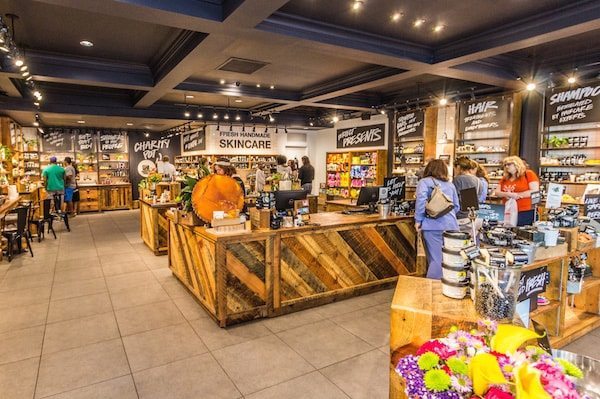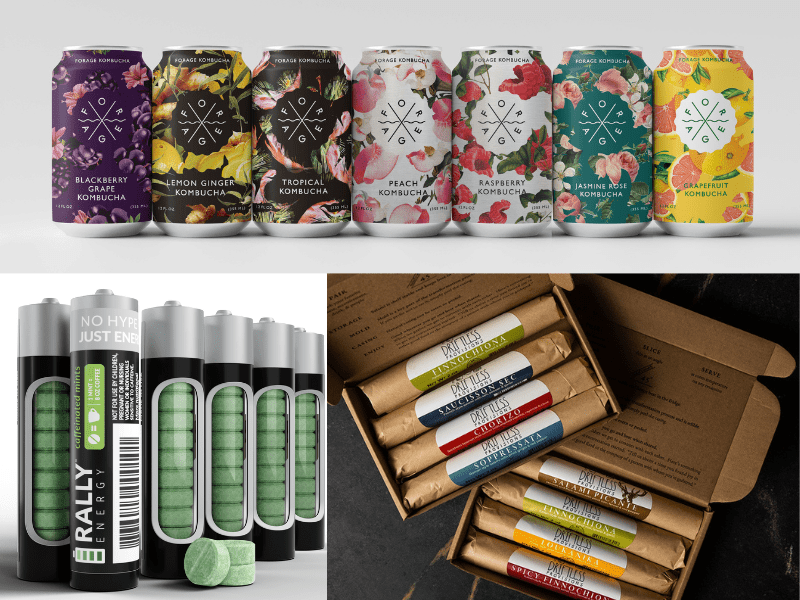In starting and supporting a growing food business, strategy should inform every action the entrepreneur takes. Business strategy, at a high level, is informed by the smaller strategies of the different elements of the business model. And, the strategy governs the actions taken by food entrepreneurs to meet their business goals. This doesn’t mean that food entrepreneurs need long or rigid strategic plans. But, entrepreneurs need to define and put constraints on their actions so that they focus on what is important in growing their business at that time.
Food brand development needs to be strategic so that entrepreneurs only speak to and “activate” (i.e. get sales from) their target customers. Food companies’ sales and marketing efforts need a strategy, including a channel strategy and a go-to-market strategy, so that they target the right geographic areas with the right channel partners at the right time with the right promotional activities. The business’ products need category strategies to stand out in stores against the competition at the right price points so that people actually buy the product. Fundraising and financial planning efforts need strategic focus so that the entrepreneurs adequately capitalize the business to support the other parts of the strategy. Without clearly defined strategies for success that leverage their defensibly unique strengths and current market opportunities, entrepreneurs won’t know how to prioritize their activities.
On our podcast this week, Frank Jimenez of Evolve Brands talks about how strategy informs everything they do. Since the snack category is crowded, the Evolve Brands team has focused their efforts on sales and marketing to build a strong distribution footprint of around 2,500 independent, natural and co-op grocery stores. This channel strategy that focuses on smaller chains, independents and natural grocers is where they have found they can get the most relevant customer feedback and other data to support future business development. To support their strategy, the Evolve team approaches retailers with a fully loaded promotional calendar with sales targets, proposed spending and tactical descriptions supported by data to help make the case for why partnering with Evolve will be successful.
Good strategies are ones that reflect current relationships with customers/partners and current market realities, and thus, can shift as those things shift. Without a well-documented strategy, even well-meaning food entrepreneurs can get distracted or fail to execute on their business’ core needs and goals.
And now, our roundup of the best food and beverage finance news, events and resources from around the web…
 Business Model Insights
Business Model Insights
- Pricing and promotion strategies for omnichannel success (New Hope Network) – “There are a few pricing fundamentals you have to address before you start working with the numbers. #1 – Are you going to price things based on the cost or based on the market? You should price it based on the market so that it conforms to your consumer’s demand and expectations as well as your competitive environment. #2 – Are you going to maximize revenue or profits? #3 – Are you going to be a price leader (either low or high in your category) or a price follower? You need data to plan, monitor and adapt your strategy.”
- What it takes to win shelf space, according to buyers and brands (FoodNavigator USA)
- Sustainable Sources of Competitive Advantage (Collaborative Fund)
 Raising Capital
Raising Capital
- Stop wasting time talking to the wrong investors (New Hope Network) – “One of the best ways a CEO can improve productivity when fundraising is to make sure he or she is targeting the right prospective investors. The CEO should know the size of the fund, the fund’s investment strategy/process, their typical check size, and whether they are a lead/follow-on investor, among other things, and if this aligns with the goals/stage of the business. Do the research to find this out, including talking to the fund directly or reaching out to a CEO of one of their portfolio companies.”
- Plotting A Map For Food Business Financing (Small Food Biz Podcast, with FFI’s Tera Johnson)
- Short-Term Financing: Take a Longer View for a Healthier Outlook (Inc.)
CPG/National Brands
- Extend the Story Through Packaging, Technology (Project Nosh) – “Companies now have the opportunity to use new packaging technologies — such as QR codes, nearfield communication (NFC), radio frequency identification (RFID), bluetooth, and augmented reality (AR) — to create a deeper relationship with consumers. While it’s true that, with only fractions of a second available in a store, engaging packaging is the best way that brands can connect with a consumer, once in their homes, these technologies can be used in building a brand story, sharing specific product information, and offering promotions or discounts.”
- Proven strategies to forge deep connections with consumers (New Hope Network)
- This Is What It Takes to Become a Category Leader (Taste Radio Podcast)
Market Trends
- Mindful sourcing: Consumers are becoming more mindful about their food choices (SmartBrief) – “In the context of foods and beverages, mindfulness has created an empowered consumer increasingly asking meaningful questions about the origins of their food. Mindful sourcing means that as consumers seek more information and expect greater degrees of transparency, they are becoming more mindful about their food choices. Mindful sourcing includes wanting to know what is in their food and beverages in order to make the most informed decisions that might be influenced by health, environmental or ethical issues.”
- Snack brands rewrite the story at breakfast (BakingBusiness.com)
- Survey: Grocers need to embrace technology to enhance the shopping experience (Refrigerated & Frozen Foods)
 Farming and AgTech
Farming and AgTech
- FoodShot Global on Investing in a Regenerative, Biodiverse Food System (FoodTech Connect) – “An increasing number of investors share common values around a more healthy, sustainable and equitable food system, and they see the opportunities to generate both financial returns and impact. Food brands, whether CPG, food service or ingredient, will be seeking out unique and powerful flavors and new functionalities that differentiate them from their competitors and provide customers with unique food experiences. And just like investors diversity their portfolios to mitigate risk in the face of market volatility, we need to diversify our food system to reduce vulnerability to pests and disease that could lead to catastrophic crop failures.”
- Farm bankruptcies shed new light on perils of Big Agriculture (Axios)
- What does “local” mean? And is it really better? (New Food Economy)
 Deals/M&A
Deals/M&A
- Grocery M&A increased 73% last year (GroceryDive) – “There were 527 M&A deals in the food space in 2018, which is an 11% decrease from the record number seen in 2017. The surge in supermarket M&A is a notable pickup in activity as industry pressures — from digital transformation to the continued rise of alternative formats — continue to weigh on chains. From smaller mergers to major acquisitions, the grocery industry kept busy last year as competition and margins drove success and failure among a number of companies.”
- Nutrition Capital Network Deal Download: March 2019 (New Hope Network)
- With a Lack of Investors, PieShell To Close (Project Nosh)
 Industry Events
Industry Events
- Financing Your Consumer Product Company: Natural, Organic, Specialty, Retail & Premium (Natural Products Consulting) – $, 4/30 in Chicago, IL
- Becoming A More Effective Sales Manager In The Natural And Specialty Channel (Natural Products Consulting) – $, 5/1- 5/2 in Chicago, IL
- Live, Online Raising Equity Course (Food Finance Institute) – $, 5/6 – 5/20 online
- Food Business Success Startup Accelerator Course (Sari Kimbell Consulting) – $, starting 5/6 online
- American Food Fair (National Restaurant Association) – $, 5/18- 5/21 in Chicago, IL
- Food Funded 2019 (Slow Money Northern California) – $, 6/6 in San Francisco, CA
- Nosh Live Summer 2019 (Project Nosh) – $, 6/10 – 6/11 in New York, NY
- Summer Fancy Food Show – $, 6/23 – 6/25 in New York, NY
- Expo East 2019 (New Hope Network) – $, 9/11 – 9/14 in Baltimore, MD
- Food and Ag Ideas Week (Grow North MN) – $, 10/15 – 10/20 in Minneapolis, MN
- National Farm Viability Conference 2019 (Multiple Hosts) – $, 10/22 – 10/24 in Redwing, MN
- Good Food Financing and Innovation Conference (FamilyFarmed) – $, 11/3 in Chicago, IL
- Business Tax Basics (UW-Madison SBDC) – $, 11/19 in Madison, WI



